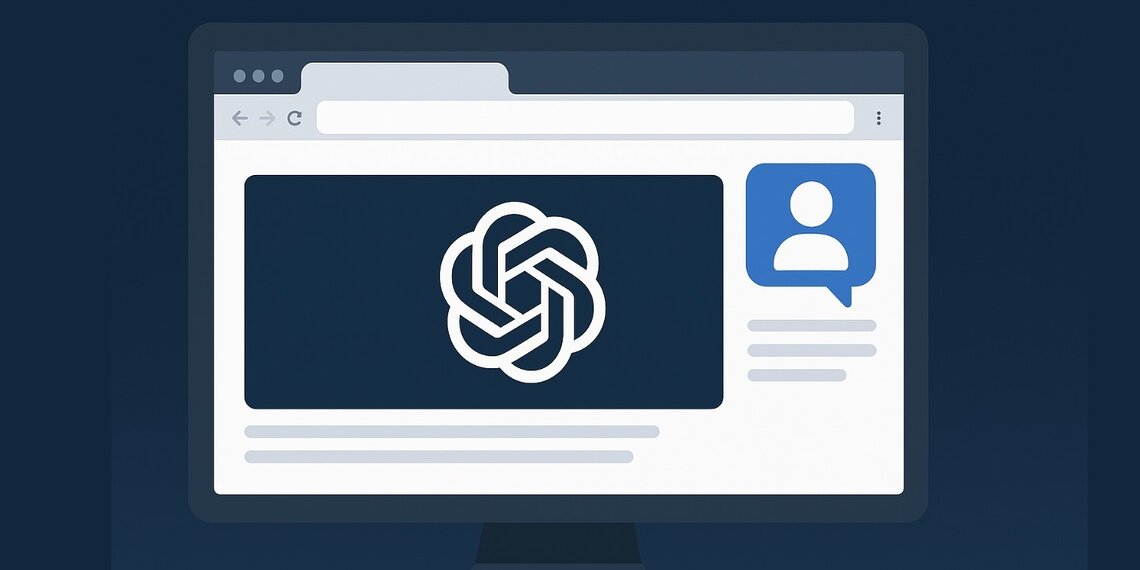OpenAI is reportedly gearing up to release a powerful AI-driven web browser in the near future, signaling a bold step toward reshaping how users interact with the internet. According to a report from Reuters, the browser is expected to debut in the “coming weeks” and may come packed with intelligent features courtesy of OpenAI’s Operator AI agent. This advanced assistant could handle everyday online tasks autonomously, from booking reservations and filling out forms to executing more complex actions illustrating OpenAI’s move toward a fully “agentic” web experience.
At the heart of this innovation lies a native integration of ChatGPT, OpenAI’s widely recognized AI chatbot. Instead of directing users to a separate website, the browser would allow seamless interaction with ChatGPT from within the browsing window itself. This direct interface could make intelligent assistance feel like a natural extension of internet activity, blending conversation and functionality into one cohesive user experience.
The technical backbone of the browser is also noteworthy. OpenAI plans to build its new tool on Chromium, Google’s open-source browser engine. Chromium serves as the foundation for popular browsers like Google Chrome, Microsoft Edge, and Opera, providing a proven framework for speed, stability, and compatibility. OpenAI’s choice to use Chromium suggests an intent to capitalize on existing browser architecture while layering in transformative AI enhancements.
The competitive landscape is already shifting. Perplexity, another AI startup, recently unveiled its own Chromium-based browser, Comet, priced at $200 per month. Comet includes default access to Perplexity’s AI search engine and features its own built-in assistant. With both Perplexity and OpenAI introducing advanced browsing tools powered by artificial intelligence, the pressure on traditional tech giants, particularly Google is intensifying. Reuters points out that Google may soon be compelled to divest Chrome due to antitrust actions, opening doors for emerging players to reshape the browser market. Interestingly, both Perplexity and OpenAI have expressed interest in acquiring Chrome, further fueling speculation and competition.
Rumors about OpenAI launching its own browser aren’t new. A report by The Information last year revealed early explorations into the idea, including the recruitment of two engineers who played critical roles in the development of Chrome. Since then, OpenAI has taken meaningful steps toward enhancing user interaction, such as embedding search capabilities within ChatGPT. This new browser appears to be the next logical chapter in that evolution, one that could dramatically alter how people navigate, explore, and complete tasks online.
With its upcoming AI browser, OpenAI isn’t merely entering the market, it may be redefining it. If the vision holds true, users could soon experience a web that understands context, anticipates needs, and responds with intelligent precision, all within a single, unified platform.










